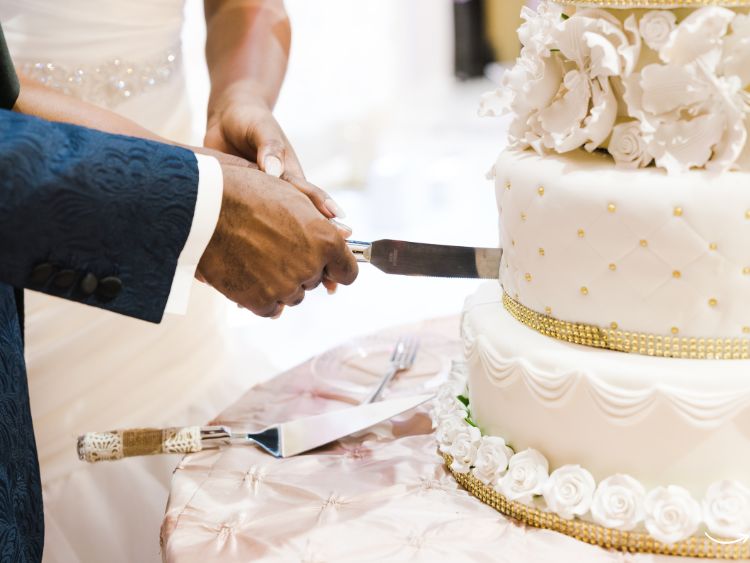Why This Officiate Wedding Guide Matters
Taking on the role of a wedding officiant can be both an honor and a little nerve-wracking. Whether you’ve been asked by close friends or you’re stepping into this role professionally, knowing how to officiate a wedding with confidence and warmth is essential. This officiate wedding guide is here to help you craft a meaningful ceremony that leaves a lasting impression, covering everything from legal requirements to creating a ceremony script that speaks to the couple’s unique story.
Let’s dive into the essentials and explore what it takes to officiate a wedding with grace, humor, and heart.
1. Understanding the Officiant’s Role
What Does an Officiant Do?
In a wedding, the officiant is the person responsible for guiding the ceremony, leading the couple through their vows, and, in most cases, legally binding the marriage. The role involves:
- Setting the tone: The officiant’s words, gestures, and timing can establish a ceremony that feels intimate, joyful, and respectful.
- Facilitating vows and rituals: These elements are often the most memorable moments, so officiants help organize and direct these.
- Handling legalities: Ensuring the marriage is legally recognized is a critical aspect, from signing the license to completing state-specific requirements.
Why Do Couples Choose Friends or Family to Officiate?
Many couples feel more comfortable having someone they know officiate their wedding. It brings a personal touch and familiarity that adds warmth to the ceremony. Plus, with a friend or family member officiating, the ceremony feels more intimate and unique to the couple’s personality.
2. Legal Requirements for Wedding Officiants
How to Become a Legally Recognized Officiant
The legal steps to officiate a wedding vary by location, but in most cases, you’ll need to:
- Check local requirements: Laws vary by state and even by county, so be sure to research whether you need to be ordained or registered to officiate.
- Get ordained: Online ordination is common and recognized in many places. Websites like Universal Life Church (https://www.ulc.org) and American Marriage Ministries (https://theamm.org) offer free ordination.
- Register (if needed): Some states require officiants to register before the ceremony. This might involve paperwork, fees, or proof of ordination.
Important Legal Steps on the Wedding Day
On the wedding day, make sure to:
- Check the marriage license: Confirm details with the couple and ensure it’s signed by the necessary witnesses.
- Sign and submit: Complete any remaining steps, like submitting the marriage license to the appropriate office within a specified time frame.
3. Crafting a Ceremony that Resonates
Getting to Know the Couple’s Story
A standout wedding ceremony often reflects the personalities of the couple. Here’s how to ensure that your words are meaningful:
- Ask questions: How did they meet? What do they admire most about each other? What are their shared values or dreams?
- Incorporate anecdotes: Adding a few light-hearted or heartfelt anecdotes about the couple’s journey can make the ceremony memorable.
- Find the right tone: Some couples may want a traditional, formal ceremony, while others may prefer something more light-hearted and modern. Adjust your style accordingly.
The Ceremony Structure
While each wedding is unique, most ceremonies follow a similar structure. Here’s a breakdown:
- Introduction and Welcome: Set the stage, welcome guests, and introduce yourself if needed.
- Acknowledgment of Loved Ones: Some officiants include a moment of gratitude or acknowledgment for family, friends, or loved ones who have passed.
- Reflection on Love and Marriage: Share a few thoughts on the meaning of marriage and love.
- Exchange of Vows: Guide the couple through their vows or invite them to read their personal vows.
- Exchange of Rings: Facilitate this classic part, usually with a brief statement about the rings.
- Pronouncement of Marriage: This is the moment! Pronounce them officially wed and invite them to kiss.
- Conclusion: Thank everyone for attending and introduce the newly married couple.
4. Writing a Personalized Ceremony Script
Example Script Structure
If you’re looking for a starting point, here’s a brief sample you can personalize:
Welcome: “Friends and family, welcome! Today, we gather to celebrate the love story of [Couple’s Names]. My name is [Your Name], and I have the honor of guiding [Couple’s Names] through this special moment.”
Acknowledgment: “Before we begin, let us take a moment to remember those who could not be with us but are here in spirit.”
Reflection on Love: “Marriage is a beautiful journey, a union that brings joy, comfort, and purpose.”
Vows: “[Name], do you take [Name] to be your lawfully wedded spouse?”
Rings: “These rings are symbols of the commitment you make today.”
Pronouncement: “By the power vested in me, I now pronounce you married! You may kiss!”
5. Tips for Speaking with Confidence
Practice Makes Perfect
Public speaking can be intimidating, especially when officiating a wedding. Here are some tips to make the experience smoother:
- Practice aloud: Go through the ceremony multiple times. Hearing yourself helps catch any awkward phrasing and gives you a feel for the pacing.
- Use pauses: Pauses can emphasize important moments and create a calm, measured tone.
- Stay calm and collected: Nervousness is natural, but remember that this is about the couple. Stay focused on them, and it will naturally feel more personal.
6. FAQs about Officiating a Wedding
Do I need to be ordained to officiate a wedding?
In most places, yes. Online ordination through recognized organizations like Universal Life Church is usually accepted (https://www.ulc.org).
Can I write my own ceremony script?
Absolutely! Writing a personalized script is encouraged, especially when you know the couple. Just make sure to include any required legal language specific to the state.
How long should a wedding ceremony be?
The average wedding ceremony lasts 20 to 30 minutes, but the length can vary depending on what the couple wants to include.
Do I need to memorize the entire script?
No, you don’t need to memorize it. You can have the script on hand, but practicing in advance can help you deliver it naturally.
What should I wear as an officiant?
Ask the couple if they have a preferred dress code. Usually, it’s best to dress formally and avoid drawing too much attention away from the couple.
7. Summing It All Up
Becoming a wedding officiant is both a responsibility and a rewarding experience. This officiate wedding guide has covered the basics, from legalities to crafting a ceremony that resonates. At its core, your role as an officiant is to reflect the couple’s journey and foster a memorable moment for everyone present. With preparation, confidence, and a touch of personalization, you’re sure to create an unforgettable ceremony.
Additional Resources
For more information on officiating weddings and state-specific guidelines, check out the following resources:
- Universal Life Church: https://www.ulc.org
- American Marriage Ministries: https://theamm.org
- Wedding Officiant Training: https://theofficiantdirectory.com
- Marriage Laws by State: https://usmarriagelaws.com



